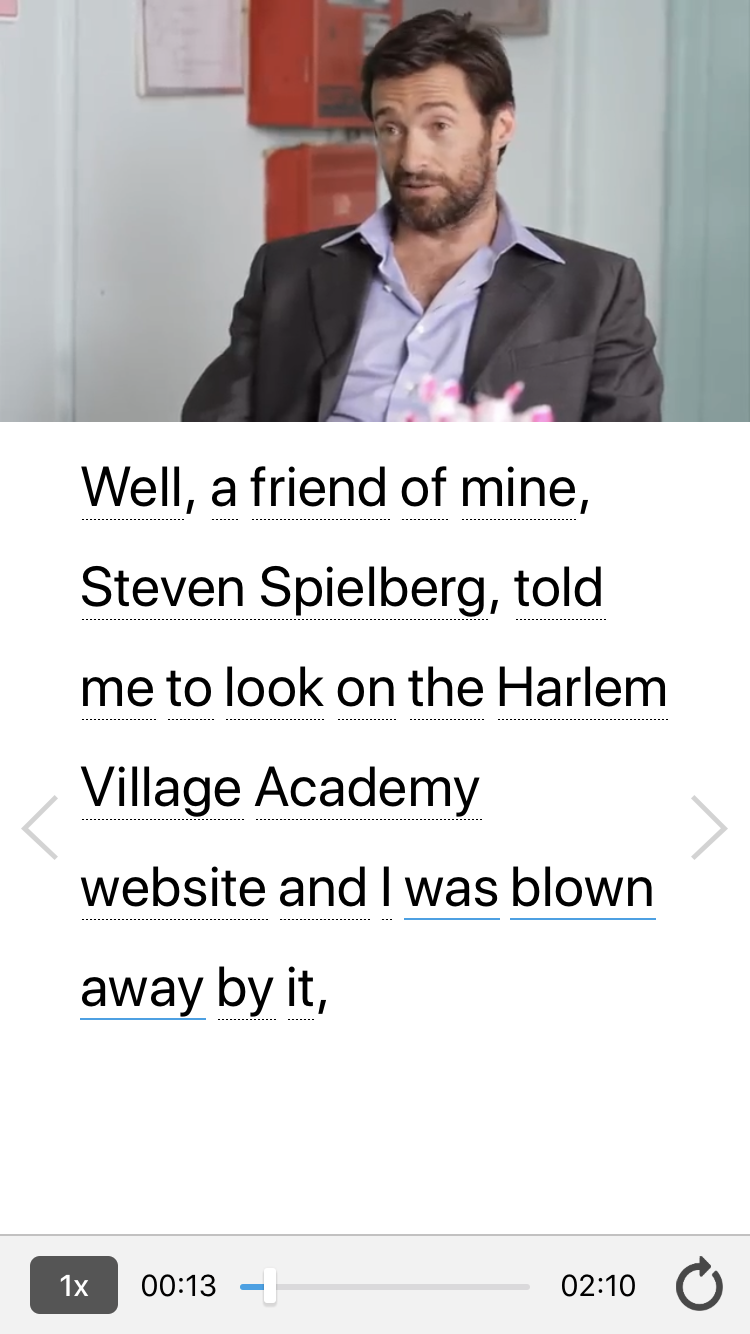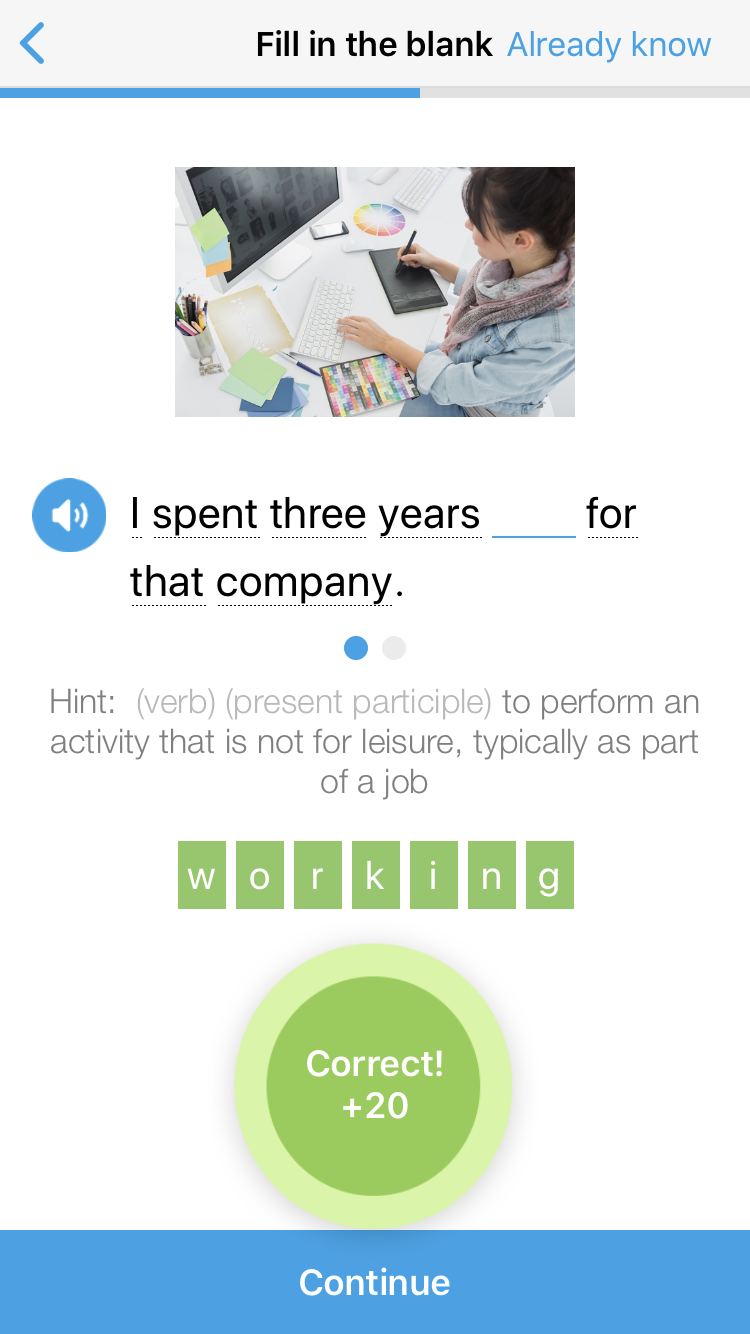What Does the Horse Say in English
Meow! Woof! Chirp!
Do you know which animals make these sounds?
Cats, dogs and birds all speak the same language, but the words used for their sounds vary from language to language.
Some animal sounds and verbs are also used in everyday conversation to mean different things. So besides learning some fun new words, knowing animal sounds in English will also show you new ways to express yourself in conversation.
Download: This blog post is available as a convenient and portable PDF that you can take anywhere. Click here to get a copy. (Download)

Don't Animals Sound the Same in All Languages?
Animal sounds are a form of onomatopoeia, which are words that imitate sounds. Words like "pop" "buzz" and "boom" are forms of onomatopoeia, and so are "meow," "woof" and "moo."
Cats and explosions might sound the same all over the world, but the way we hear sounds is different depending on where you're from. For example, if you speak a language that doesn't have the letter "l," like Japanese, you might say that a chicken says "koke," not "cluck."
Most animal sounds around the world are similar, with some variations depending on the language and the way we hear things.
If you're interested in how animals sound in different languages, check out this page. (The rooster's crow and the frog's croak have some interesting variations!)
You can also head toFluentUand learn everything about animals in a fun, immersive way.
FluentU takes real-world videos—like music videos, movie trailers, news and inspiring talks—and turns them into personalized language learning lessons.
With FluentU, you'll get all the necessary vocabulary to talk about animals and any other topic you want. Give it a free try and see for yourself!Why Learning English Animal Sounds Is Important
Knowing animal sounds in English might seem unimportant, but these sounds are a part of culture. Animal sounds are one of the first things babies learn when they're learning to speak. You may not need to use the word "moo" in everyday conversation too often, but knowing it will take you one step closer to speaking—and thinking—like a native.
Animal sounds, and onomotopoeia in general, can also help you understand how to pronounce words better, since it helps you hear things differently. The more you know about the English language, no matter how trivial (unimportant) the information seems, the better you will become at it!
In fact, word pronunciation is crucial for excelling in academic environments or the business world.
For that, the resource that we would most recommend is the Creativa Mastering North American English Pronunciation course.
Creativa provides premium, highly produced videos for learning English and business communication skills. Creativa provides entertaining videos, useful but unexpected tips, and goes beyond just English to teach you body language, intonation and specific pronunciation tips. Creativa is a new product from the FluentU team.
Here's a sample video from Creativa's Mastering Business Video Calls in English course, which has tips for expressing yourself effectively:
Hee-Haw! 17 Fun Animal Sounds in English
1. Cats — meow
As any cat owner knows, cats meow when they want something. When they're content (happy), like if they're enjoying some petting, they purr. Cat purring sounds like a little engine!
Unhappy cats might yowl, or cry out loudly. Or they might hiss, which is also the sound a snake makes.
2. Dogs — woof
Dogs make many noises, depending on what they're feeling and even how big they are. Angry dogs growl, scared dogs whimper, and some dogs (and wolves) howl.
Many dogs woof or ruff, but small dogs yip and yap (someone yappy is someone who talks a lot), while large dogs have a deep bow-wow. All these sounds are called barking. A dog that says "woof" is not "woofing," it's barking.
3. Horses — neigh
If you've ever heard a horse's sound, you know it's hard to describe. In English the sound is written as a neigh, and is called a whinny.
The word "whinny" might be another attempt to write the sound a horse makes, or might be related to the word "whine," which is a complaining sound (and in fact, can be used to talk about humans who are complaining a lot in a childish way).
Horses also make a snorting sound and the less often used nicker, which is a low whinny.
4. Goats and sheep — baa
A classic nursery song mentions the sounds of goats and sheep: "Baa baa black sheep have you any wool?"
These farm animals make the sound baa, which is unusual because we don't normally see two a's next to each other in English. The double a's are used to show that the sound is elongated (lengthened). This cry is called a bleat.
5. Pigs — oink
Pigs seem to speak differently in every language, and in English they say oink. Pigs also squeal, which is a high-pitched whine. Humans squeal too, usually to show happiness (i.e. "She squealed in delight when she saw the present").
"To squeal on someone" also means to tell on them, especially when it concerns a crime. For example, "The robber would have gotten away with the money, but his partner squealed to the police."
Another pig noise is the grunt. You probably grunt sometimes too, since it's the sound you make when you do something physically difficult. A grunt is also the name for the lowest level workers and soldiers. This led to the term "grunt work," used to describe boring jobs that no one wants to do. We seem to take a lot of inspiration from pigs!
6. Cows — moo
The sound a cow makes is moo. This sound is officially called lowing, which comes from a word that means to shout, but you'll probably never hear it called that in real life. Saying that "the cow is mooing" is just fine!
7. Donkeys — hee-haw
Donkeys have a two-toned call that sounds pretty funny. In English, this sound is called braying, and is written as hee-haw.
The British version is a bit different from the American though; it's written as eeyore. Sound familiar? That's the name of the sad donkey in the Winnie the Pooh stories.
8. Chickens — cluck
Female chickens are called hens and they make a clucking sound. Baby chickens say cheep, and are called chicks, which is also an extremely informal and somewhat insulting way to refer to women.
Different languages seem to agree on these sounds pretty closely, but roosters (male chickens) are a different matter!
9. Roosters — cock-a-doodle-do
When a rooster calls in the morning, that's calledcrowing (similar to the bird "crow," but in this case it's a verb). In English, the sound of a rooster is written as cock-a-doodle-do. How is that different from the sound a rooster makes in your language?
10. Birds — chirp
Birds of all sizes are known for their sounds, which are usually called singing. Birds chirp, trill and warble. They also tweet and twitter, which you might recognize as the name of a very popular social media website with a bird logo. Now you know why!
11. Owls — Hoot
Owls might be birds, but they make different sounds. In fact, they're known for not using too many sounds at all as they fly; they're silent predators (animals that hunt other animals for food).
The owl's sound is called a hoot. Owls, and other birds of prey like eagles and hawks, can also screech—a loud, high-pitched yell.
12. Ducks and geese — quack and honk
Do you think ducks and geese sound the same? In English, they make two very different sounds. Ducks quack and geese honk. Both words are also used in regular English: cars and trucks also honk when they blast their horns, and a quack is a fake doctor.
13. Turkeys — gobble
The sound a turkey makes is called a gobble. That's also a word that means to eat quickly. So every Thanksgiving—an American holiday when people traditionally eat turkeys—we gobble up turkeys.
14. Mosquitoes — buzz
How many times have you been awakened in the middle of the night as a mosquito flew by your ear? Many insects like mosquitoes, flies and bees, make a buzzing sound.
In the middle of the night, the sound is more like a whine, which you've already read means to complain. We should be the ones complaining!
15. Crickets — chirp
Crickets, like birds, say chirp. Many crickets chirping together make a beautiful symphony. One cricket chirping indoors can drive you crazy.
16. Frogs — ribbit
In English, frogs croak or say ribbit, and you can thank Hollywood for that! Ribbit is the accepted sound for a frog in English, but only one frog species actually says ribbit, and it was introduced into our language by Hollywood when sounds came to the movies.
17. Lions — roar
If you're out in the African wilderness and you hear a low growl or a loud roar, get out of there fast! That's the sound of a lion, the "king of the jungle."
Now you'll always know which verb or sound to use when you're talking about animals. You might have also learned some useful words to use in everyday conversation. You're one step closer to speaking like a native!
Download: This blog post is available as a convenient and portable PDF that you can take anywhere. Click here to get a copy. (Download)
And One More Thing...
If you like learning English through movies and online media, you should also check out FluentU. FluentU lets you learn English from popular talk shows, catchy music videos and funny commercials, as you can see here:

If you want to watch it, the FluentU app has probably got it.
The FluentU app and website makes it really easy to watch English videos. There are captions that are interactive. That means you can tap on any word to see an image, definition, and useful examples.

FluentU lets you learn engaging content with world famous celebrities.
For example, when you tap on the word "searching," you see this:

FluentU lets you tap to look up any word.
Learn all the vocabulary in any video with quizzes. Swipe left or right to see more examples for the word you're learning.

FluentU helps you learn fast with useful questions and multiple examples. Learn more.
The best part? FluentU remembers the vocabulary that you're learning. It gives you extra practice with difficult words—and reminds you when it's time to review what you've learned. You have a truly personalized experience.
Start using FluentU on the website with your computer or tablet or, better yet, download the FluentU app from the iTunes or from the Google Play store.
If you liked this post, something tells me that you'll love FluentU, the best way to learn English with real-world videos.
Experience English immersion online!
What Does the Horse Say in English
Source: https://www.fluentu.com/blog/english/animal-sounds-in-english/#:~:text=Horses%20%E2%80%94%20neigh&text=In%20English%20the%20sound%20is,and%20is%20called%20a%20whinny.
0 Response to "What Does the Horse Say in English"
Post a Comment